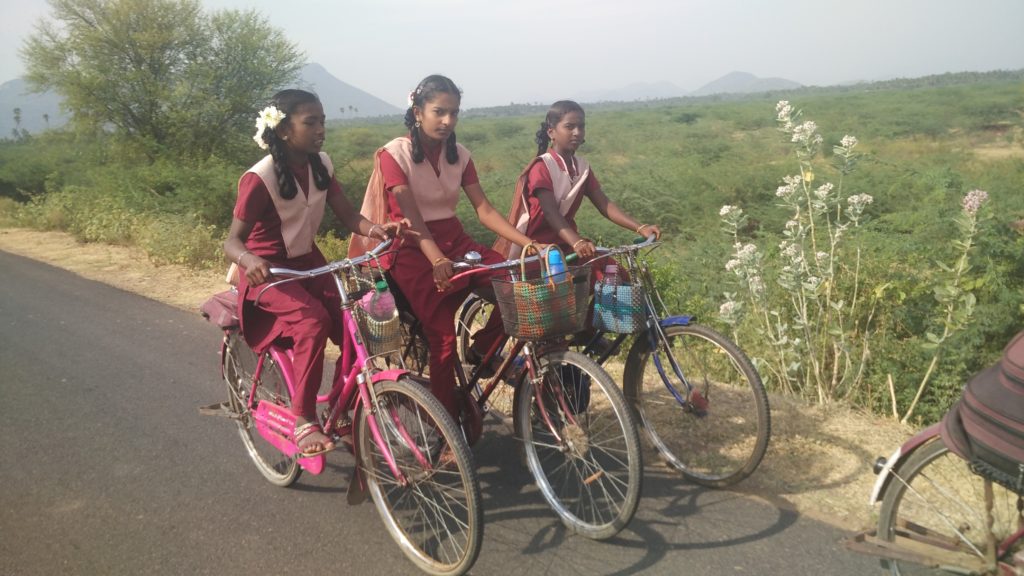Many readers had things to say about last week’s post. Ranging from my friend who joked that the post felt like a mystery novel, to another who said they could sense the feelings I had described. Thank you.
If you’re here for the first time, subscribe to my weekly newsletter
Reading on email vs reading online: the web versions are either abridged versions or miss the photos or sometimes my perspective. Make sure you’ve popped in your email address here:
Here was my first post introducing what I’ll be writing about. Before I jump into the article, I wanted to share with you 3 quick things I’m really enjoying learning and working on, as part of the newsletter. [Email version only]
Last week’s was a story of solidarity. Women’s Day for this year may already be behind us. But for those of us who work with women and non-binary genders throughout the year, a recent point of concern has been what’s happening with women’s online expressions.
Do women have freedom online?
Is it the same degree as their offline freedom? Or are there more consequences (esp punishments) to expressing oneself online, especially when our offline level of freedom has not caught up yet?
How an increase in the level of abuse during the pandemic was facilitated by Information and Communication Technologies (ICT) is well-studied. Many domestic-abuse helplines in Mumbai reported going berserk with the number of phone calls shooting up beyond their limited capacities. LGBTQIA and non-binary genders were not spared either. Nor were those from certain social locations – low income groups, minorities, dalits and tribal communities. This UNESCO commissioned study notes how women journalists attract more abuse.
The data on online abuse was out at the time I was figuring out my work focus areas in the Vidarbha region.
It was around this time in 2020 that I was again at crossroads trying to determine the direction and focus areas of my work. I wasn’t sure who I would meet up with.
That’s when I was approached by a mother in her 30s
She told me the following: A WhatsApp status photo that she had posted of herself at a waterfall had caused a rift in her family. A relative had taken a screenshot, circulated it in family groups questioning her attire. When she approached her husband for support, he slapped her across her face. “Why did you post such a photo? And now you expect me to support you?” he asked her. Things had changed in her marriage, forever.
When she learnt about me, she came to me expressing her interest to work in this area, to help build awareness and to do her part in reducing violence.
Her presence and her personal story always reminded us of how real harm could be. It kept us grounded.
What are some practical ways we can help someone facing online abuse?
This is in no way a complete nor exhaustive list – far from that. But simply things that have stood out to me, from every case work I’ve had the opportunity to work on, both offline and online. From every woman that I’ve had the chance to support or work with, to learn from.
Often a woman might already know how exactly she wants to be supported by you. Do always check for that. It makes sense to rank that higher than any other idea you/others might have. I recall how an 18-year-old Ukrainian abuse survivor last year made it clear to me that she only wanted to share what happened, process it all and to feel heard by me. That was it. That I was to do or offer nothing else. That said, a few ways one can intervene especially in a public context (and when it’s made known that the intervention is not unwelcome to the person going through abuse) –
- Extend support online whenever you see a woman being attacked. Yes this can make it louder but at least it breaks the monotony of one-sided attack. Your family WhatsApp group might be hesitant the next time, knowing that you will speak up.
- Connect with the woman offline. This is important. Talk to her over the phone if you can’t meet her. Check-in on her. It is going to be a terrible world if more women give up their expression in public spaces online because it feels unsafe to them. Your phone call or act of care might help remind her that not everyone is a jerk. Your offline act of reaching out might be much more powerful than the online abuse she’s facing.
- Finally, we need to stop judging content that women post online. Noticing her clothes, her attire, questioning it internally or discussing it in close/trusted circles. It’s none of anybody’s business. But truly becoming less judgemental is hard, internal work! Merely because she has published something online or expressed herself does NOT automatically mean her audience has the right to judge her for it. Remember that those with power in her life will take the judgement a few steps further to abuse or harass her.
We don’t know if we can solve every problem or get after every attacker. But we can make the woman going through abuse feel strongly supported, restore her confidence by standing firmly behind her.
A long-term approach addressing the underlying structural problems may require a very different set of actions on the part of everyone. Also out of scope for this post is the online-offline relationship of abuse. 60% of women surveyed in a study reported that most abuse occurred on Facebook and social media. But the abuse was not limited to the internet, with 40% reporting that the abuse also occurred in person.
Meanwhile,
what approaches have worked for you? I’ll be eager to know.

